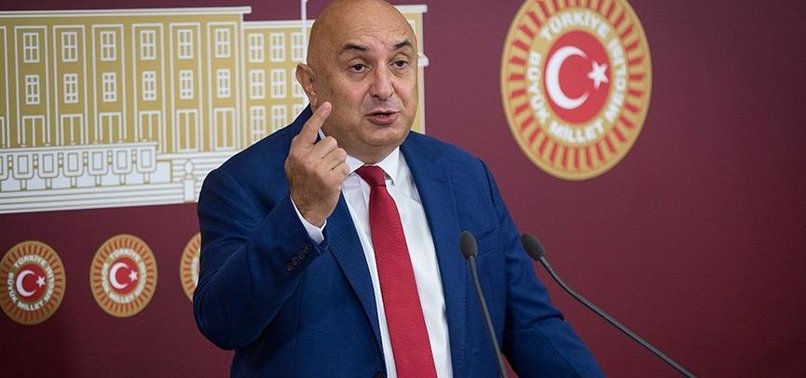Turkish President Recep Tayyip Erdoğan has filed a lawsuit against a main opposition party politician who recently referred to him as the top member of the faith-based Gülen movement, which is labelled as a terrorist organization by the Turkish government, local media reported on Monday.
Republican People’s Party (CHP) deputy group chairman Engin Özkoç on Jan. 9 said during a meeting of the party in Kocaeli that Erdoğan was “the biggest member and number one suspect of Fetö,” adding that the president had nowhere to run and eventually would be held to account for it. Fetö is a derogatory term used by the Turkish government and its supporters to refer to the Gülen movement as a terrorist organization, although the movement strongly denies involvement in any terrorist activity.
In the wake of Özkoç’s remarks, Erdoğan’s lawyer Hüseyin Aydın filed a complaint against the opposition politician on charges of insulting the Turkish president.
According to Turkish media reports, the complaint, which was filed with the Ankara Chief Public Prosecutor’s Office, said Özkoç’s remarks about Erdoğan were “baseless and constituted a serious attack on personal rights.”
Erdoğan also filed a lawsuit seeking TL 250,000 ($18,000) in non-pecuniary damages against Özkoç on accusations that he violated his personal rights.
Following an abortive putsch on July 15, 2016, Erdoğan immediately pinned the blame on the Gülen movement, inspired by Muslim preacher Fethullah Gülen, labeling the group as a terrorist organization.
Erdoğan, who had been targeting followers of the movement since the corruption investigations of December 17-25, 2013, which implicated then-prime minister Erdoğan, his family members and his inner circle, intensified the crackdown on the movement after the attempted coup.
Although Gülen and the movement strongly deny involvement in the abortive putsch or any terrorist activity, Erdoğan initiated a widespread purge aimed at cleansing its sympathizers from within state institutions, dehumanizing its popular figures and putting them in custody.
The Turkish government declared a state of emergency and carried out a massive purge of state institutions under the pretext of an anti-coup fight. In addition to military personnel, more than 130,000 public servants were summarily removed from their jobs for alleged membership in or relationships with “terrorist organizations” by emergency decree-laws subject to neither judicial nor parliamentary scrutiny.
The CHP, among other opposition parties, previously claimed in many instances that the Gülen movement had “a political wing” and that Erdoğan and his ruling AKP had links to the faith-based group.



